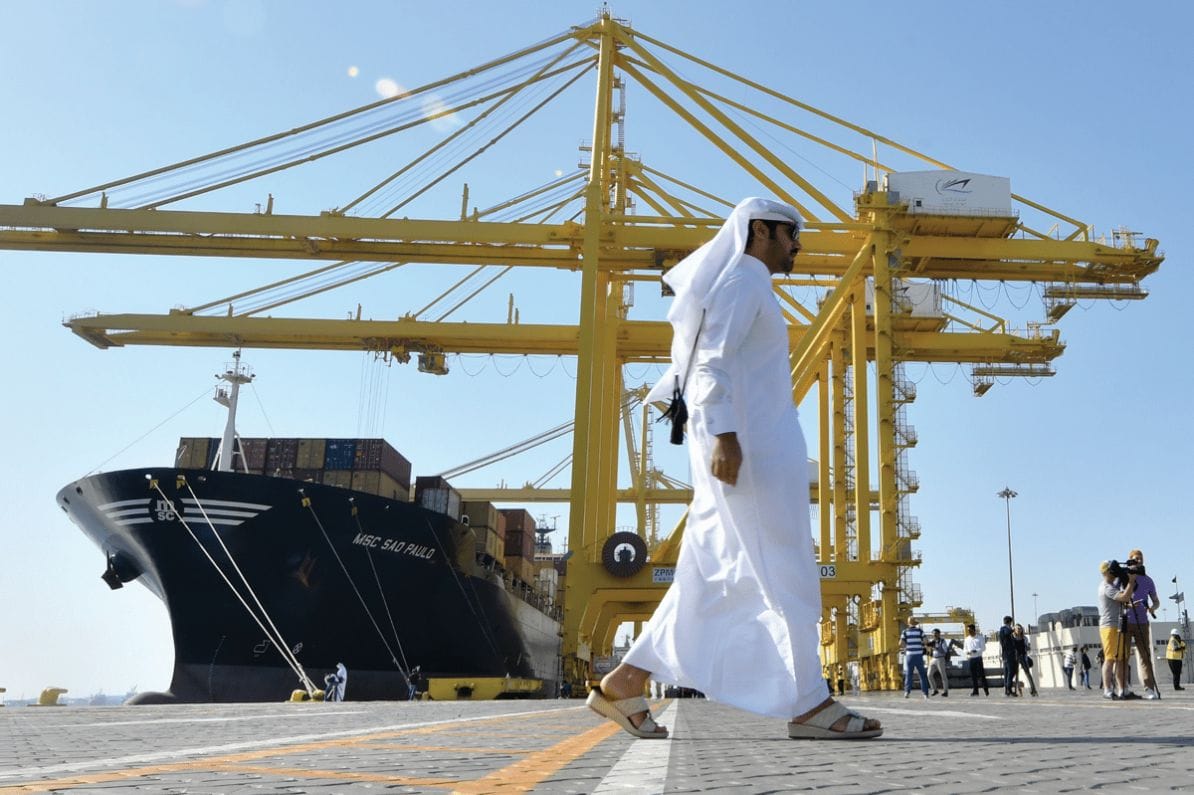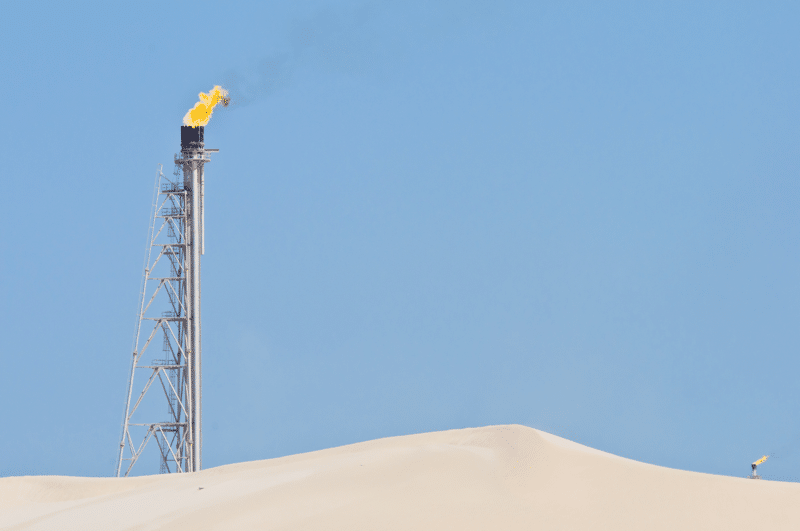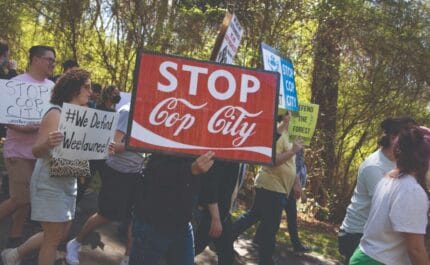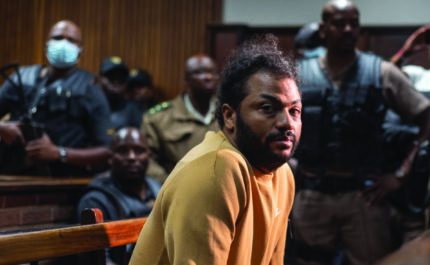Why is Qatar being blockaded by its Arab neighbours? The Gulf crisis explained
In June 2017 Saudi Arabia, the UAE, Egypt and Bahrain broke diplomatic ties with Qatar, accusing their former Gulf ally of destabilising the region and supporting terrorist groups. In DG #27 Peter Salisbury, Middle East analyst at Chatham House, walked us through the complex origins of the diplomatic crisis

Hamad port in Doha, capital of Qatar, June 2017. Photo: AP / PA Images
5th June 2017 (Taken from: #27)
I was surprised when Saudi Arabia, the UAE, Egypt and Bahrain severed relations with Qatar on 5th June, claiming that the country supports terrorist groups. I was more focused on other regional issues, the conflicts in Libya, Syria and Yemen, and it seemed a little incongruous and petty for the Gulf states to be pursuing this issue right now. But here was the ‘quartet’ demanding that Qatari citizens leave their territories, closing their airspace to Qatari aircraft and, with the exception of Egypt, barring their own citizens from travelling to or living in Qatar.
The crisis didn’t come out of nowhere. Saudi Arabia and the UAE were heavily supportive of the coup d’état in Egypt in 2013 – in which the Qatar-backed president Mohamed Morsi was ousted – and the UAE has been keen on presenting this image of Qatar as a state sponsor of terrorism for a long time. What I found surprising was that the Saudis joined in with the Emiratis’ anti-Qatar rhetoric so vociferously. The general sense I’d had was that the relationship between the Saudi and Qatari royals was okay.
What we are seeing now is the emergence – or what the Emiratis and Saudis hope is the emergence – of a new regional order based on the axis of Saudi Arabia, the UAE and Egypt. The Qataris are a thorn in the side of this trifecta and its attempts to project regional power and influence.

Photo: Shutterstock
For me the defining factor in this crisis is the individual personalities of the leaders. The crown prince of Abu Dhabi, Mohammed bin Zayed, is opposed to transnational Islamist organisation the Muslim Brotherhood. He has clearly developed a special dislike for Qatar and its emir, Sheikh Tamim bin Hamad Al Thani – and his father, Hamad, the ‘father Emir’. We’re also seeing Mohammed Bin Salman, who became crown prince and heir to the throne in Saudi Arabia in June, wanting to make a name for himself. He’s a guy in a hurry to make his mark and let people know who’s boss.
Qatar disputes the accusation that it supports terrorists, saying it doesn’t support any one group over another. It has played a role as a regional mediator, providing a base for people from the Afghan Taliban, from Hamas, from Hezbollah and from the Muslim Brotherhood, it says in order to enable regional diplomacy. In 2011, at the time of the Arab uprisings, the Qataris decided that the revolutionaries were going to win, looked at their list of contacts, and were able to do outreach with the groups on the ground in a way other countries in the region couldn’t. They placed a bet on the Islamists being the winners from the Arab Spring and it was a bad bet – not least because Saudi Arabia and the UAE were doing everything they could to counter these groups.
The Gulf allies and Egypt view the Muslim Brotherhood Mohamed Morsi was part of as a terror group, and indeed there are links between the ideology of [deceased Islamist theorist and Brotherhood member] Sayyid Qutb and Osama bin Laden. But the Brotherhood comes in so many forms and it is misleading to view it as a monolith with a specific set of views on political Islam and the use of violence. Moreover, there are ideologies which definitely inspire violence, often termed as Salafism or Wahhabism, which some of the Gulf states involved in this crisis tend to turn a blind eye to and even actively approach.
This is a dispute between ultra- wealthy royal families who run repressive, autocratic petro-states”
Most evidence suggests that Qatar has not intentionally distributed cash to terror groups but it was pretty lackadaisical during the Arab Spring about tracking who it gave money to and where that money went. There’s a high likelihood that some Qatari money ended up in the hands of what we would call extremists. But then, Qatar doesn’t see the Muslim Brotherhood, for example, as a terror group. So there is also this dispute over who is a terrorist and who isn’t. Look at Syria, where there are groups on the ground with very similar viewpoints, some of whom are sponsored by the Saudis and some by the Qataris.
The Saudis would have us believe that one set of fighters is a lovely bunch of lads and the others are terrorists. In fact, none of these groups has worldviews that are particularly palatable to a Western audience and so we’re caught up in this battle of definitions, syntax and media representation.
And then the UAE regards the Brotherhood, a transnational movement which places religious leadership above the ruling families of countries, as a threat. When you strip a lot of the rhetoric away this crisis is about the threat to the internal security of the states involved and the competition for regional influence and leadership.
Qataris own more of London than the Queen does, and in March 2017 they announced a £5 billion investment into the UK”
From a UK perspective this crisis is highly relevant because Qatar has invested a phenomenal amount of money in the country – Qataris own more of London than the Queen does, and in March 2017 they announced a £5 billion investment into the UK. They might be an important ally in a post-Brexit world.
The British government is to an extent being told to pick a friend: Qatar or Saudi and the UAE. The problem is that this is a dispute between ultra-wealthy royal families who run repressive, autocratic petro-states, and none of them has any real interests in the norms that the West – the UK and the US in particular – purports to uphold.
On 23rd June 2017, Saudi Arabia and its allies issued 13 demands with which Qatar would have to comply in order for the blockade to be lifted. These demands included the closure of Qatari state-funded broadcaster Al-Jazeera, which it views as a propaganda tool for Islamists. But the real issue with Al-Jazeera is that it has given space to voices critical of regimes allied to the UAE and Saudi Arabia and that it’s seen as a tool of destabilisation for the Gulf regimes.
This crisis has generated a loss of social cohesion in the Gulf. Over 40 or 50 years they’ve been building a khaleeji (Gulf Arab) identity, which makes people in the region feel like they’re part of something bigger. From political initiatives to sporting events, they’ve created this cohesion – and now it seems to be unravelling. We’ve reached an impasse and to resolve it one side will either have to back down and lose face, or take some drastic action and escalate the crisis, which could cost them regional popularity – and damage their reputation.
Slow Journalism in your inbox, plus infographics, offers and more: sign up for the free DG newsletter. Sign me up
Thanks for signing up.








